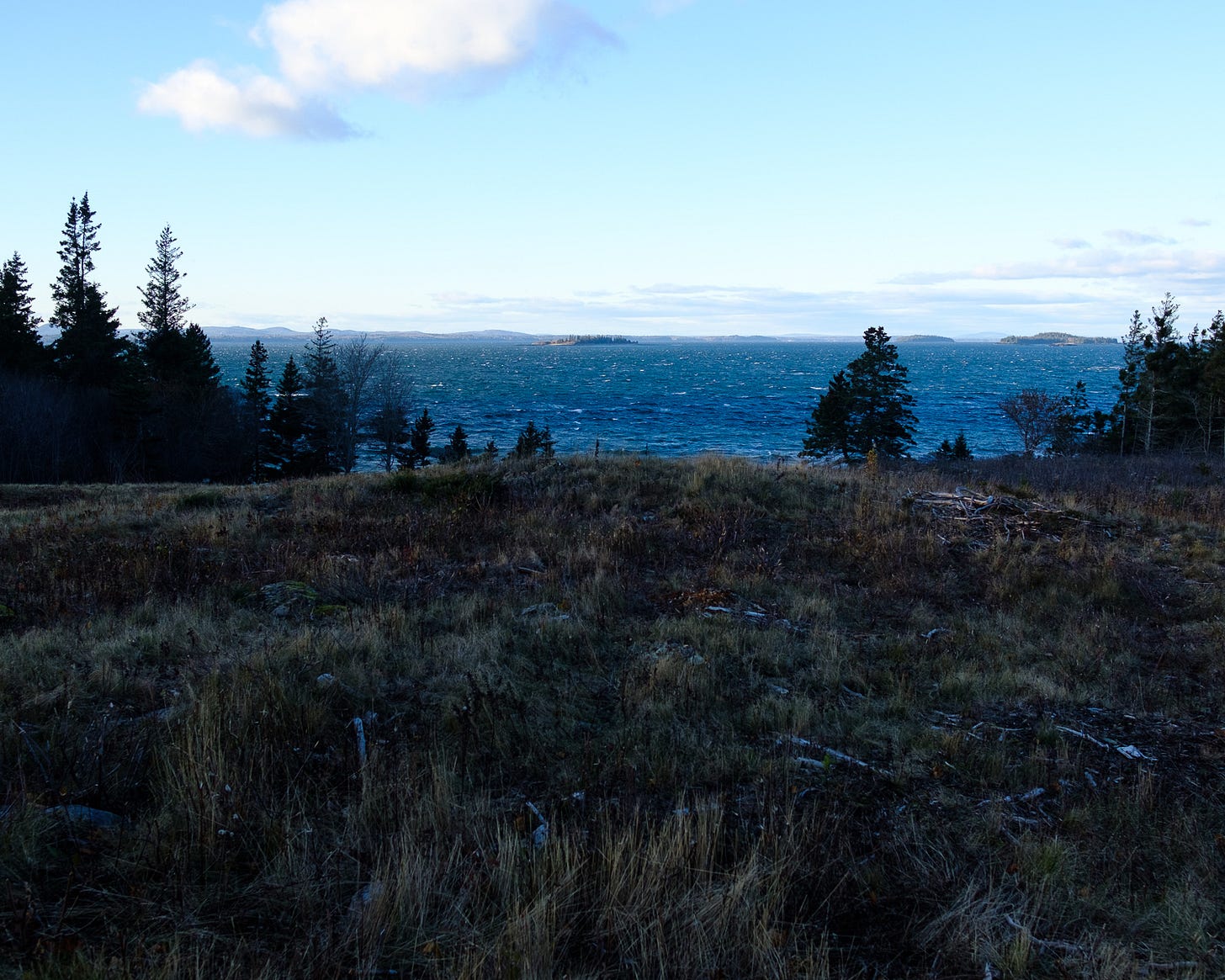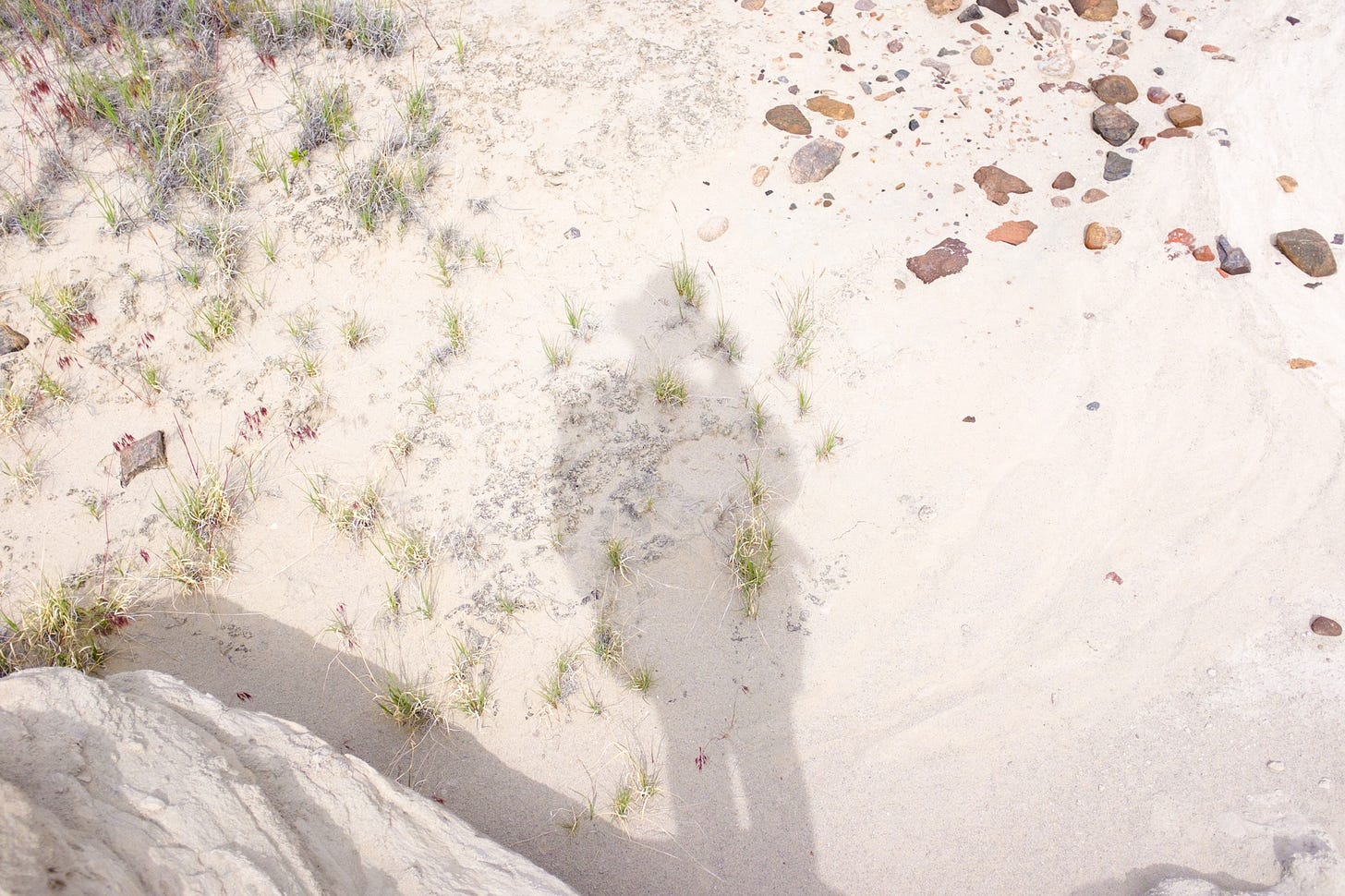How I wrote A Body Of Water
It is interesting how memory works. So much is forgotten, yet what we “remember” is enough for us to think we have remembered everything. Or at least we’ve remembered enough to make out how “we got here.” So much is left out though, it seems impossible to consider the past, without it being recorded, as any kind of true record. Yet, if there is no record beside memory, then what does truth even mean? Memory, and maybe even truth, may be formed by preference, as much as present and future action are bounded by preference.
I began writing this book from the memory of my life after I left Nebraska in 2014. In October 2014 I drove a blue Subaru Forester to the Upper Peninsula of Michigan and stayed with a friend on a remote farm near Chatham, MI. I realized in that first long drive how little I knew. I found out on accident that the UP had a long literary tradition, including Hemingway, Gary Snyder, and Jim Harrison. You can read the story of that journey, from the UP to Vermont an onward, in the book itself. Suffice to say, that fall and winter were some hard and interesting times, and those times have continued unrolling since 2014.
I put pen to paper about this story in a serious way about three falls ago on North Haven, Maine—a somewhat isolated island in Penobscot Bay. I was living there working on Turner Farm. The first words I wrote I don’t remember. I probably threw them away or deleted them long ago. The fact is, I attempted to write paragraphs about my life. Where I had gotten to, where I had started from, and why. But the paragraphs themselves didn’t hold together. For some reason they broke into lines and stanzas. I can’t really explain it any other way than that. They just decomposed into poetry.
Maybe it was the rough edges of the land itself. The water: ceaselessly beating on the rocks. The Mainers: skeptical, judgmental, and uncurious about people from “away,” yet charming and mysterious. And myself: unsure of my path, myself, of what mattered, of meaning, of my contributions, of confrontations, relationships, misunderstandings—the wounds inside myself and others.
Once the words fell into simple sentences I found the thoughts and scenes I wanted to relate easier to encounter. Not perfect, but no longer the whole glacier at once. Just a small iceberg at a time. That’s essentially the form I followed.
Fig Leaves Dying. Painted in Maine by Anna Koenig
As I lived I wrote. We moved to New Mexico on the back of extreme trauma and fear. I got depressed and thought about killing myself in New Mexico, where I was born. I wrote there too though, and saw the bright leaves of oaks and maples and ancient apples along the dirt roads, near the old adobe walls, above the acequias, and below the mountains of the Sangre De Cristo. The snow came and a dog froze to death in the ditch outside the adobe we lived in through the winter, near Taos. The courageous meditator and recovered heroine addict next door journeyed with me up to a tiny zendo on a hill below El Salto, “The Jump”, in Arroyo Seco, “Dry Stream”. And I continued to write all winter. I wrote three hundred pages or more for the book, along with the other piles of writing. And in the subsequent years I trimmed it down to about 70 pages, removing the entire section about New Mexico, and focusing only on Maine.
I was in a bathroom off the highway in Taos when the title came to mind. I think there was a painting on the wall of a river. I don’t remember the exact instant, but something clicked. While I had written in Maine and New Mexico I had often listened to the album Space Is Only Noise by Nicolas Jaar. The beginning of the album has Vito Aconci saying:
Look:
It's a body floating into the land.No...
It's a body swimming out into the water.No...
It's the land itself here who is a body, a body of land.
It's the water itself that's a body of water.
Somehow this phrase worked its way into my mind after listening so many times, to the hypnotic sound of rippling water, and the French philosophers speaking by the river and laughing in the track, and it came upon me, that A Body Of Water should be the title for the book.
I don’t think I fully succeeded to recall the beauty and starkness of the experiences I have lived through. I wish that I could form words to the way that all that landscape and living has felt, what it has produced, and why certain things are important. But, this is my best shot so far.
The most mysterious part about it is the mystery of water itself. I feel like I will be trying to understand our relationship, the metaphors, the rivers themselves, creeks, and oceans for the rest of my life. I am simply a body of water. And you are too.
You can still buy the book on my site. It’s really hard to reach people, so I would appreciate if you would take the time to forward this email or the link to anyone who might be interested in this work.
Writing is an unnoticed act. I have no idea how many thousands of hours I have spent on this book, from the living, noticing, writing, editing, designing, and publishing. It was worth it, and I don’t expect payment. But I think the work is meaningful and has a chance to do some good in the world.
I would appreciate it if you passed it along.
- Hudson











